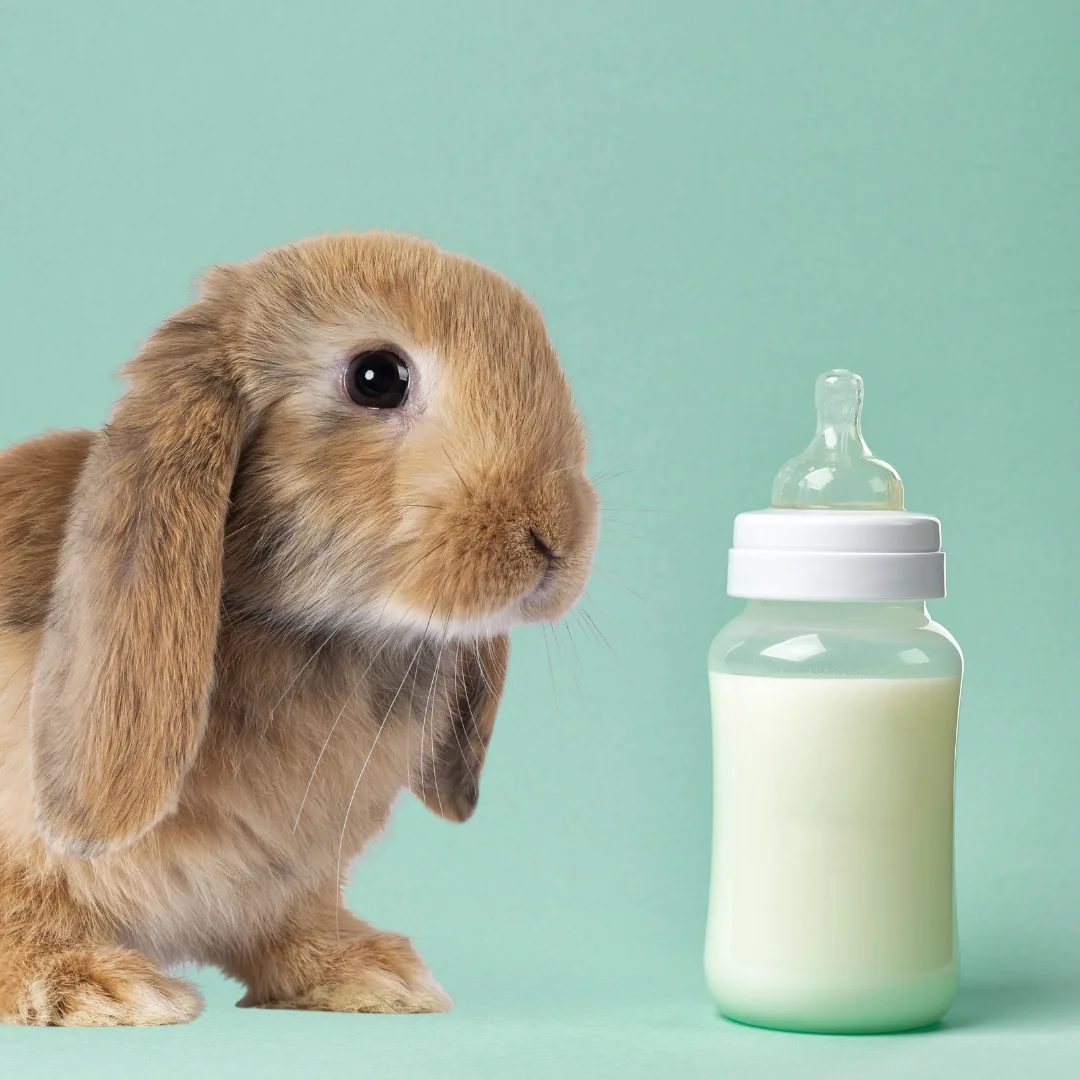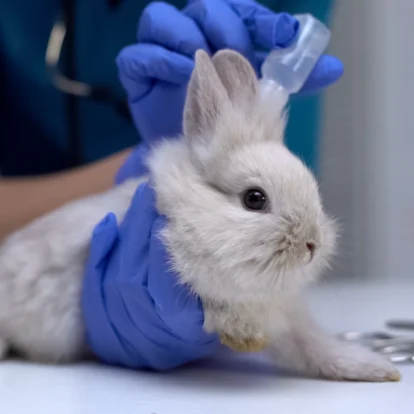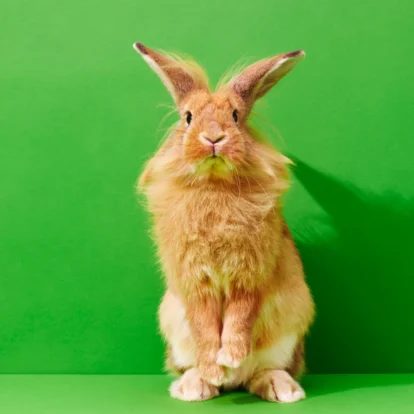Table of Contents
Introduction
Ever wondered, “Can bunnies drink milk?” 🤔 Well, you’re not the only one! This question has piqued the curiosity of many pet owners, including myself. In a world where we’ve all watched those adorable scenes in movies or cartoons where kittens contentedly lap up milk from a bowl, it’s easy to assume that other small animals, like our fluffy rabbits, might enjoy and benefit from a similar treat. But is this really the case?
In this blog post, we’ll discuss milk and rabbits. 🐰 While cows’ milk might be a staple in many human diets for our furry friends, things get a bit more complicated. Finding the proper diet is crucial for a baby rabbit’s growth and health. And as for wild rabbits, what they consume can be vastly different from what our domesticated pets can safely eat.
From my own experience and research, I’ve gathered insights about feeding rabbits milk and what other beverages bunnies can safely sip on besides the good ol’ H2O 💦. We’ll also look into whether milk-derived products could be good or bad as occasional treats for your pet rabbit (want to guess?).
Could those oh-so-cute cinematic moments have led us astray in our pet care practices? Stay tuned as we explore all there is to know about rabbits and milk consumption!
Can Rabbits Drink Milk?
Alright, here’s the TL;DR answer for you – No, bunnies should not drink milk. 🐰💦 Though it might seem like a nice idea to share some of your morning cereal’s milk with your furry friend, it’s definitely a no-go. Why, you ask? Well, allow me to hop a bit deeper into this.
Rabbits, whether they’re the tiniest baby or a fully grown adult, have very specific dietary needs. Their digestive system is quite delicate and evolved to process a high-fiber diet mainly consisting of hay, fresh vegetables, and a small amount of pellets. Milk, especially cow’s or goat’s milk, isn’t part of this diet for a good reason.
You see, rabbits are naturally lactose intolerant. This means their digestive system isn’t equipped to break down the lactose found in milk, which is a sugar type. Feeding milk to your rabbit, or even milk-derived products, can lead to serious health problems, including potentially fatal conditions like GI stasis, where the digestive system slows down or stops entirely. Not exactly the kind of bonding experience we’re looking for, right?
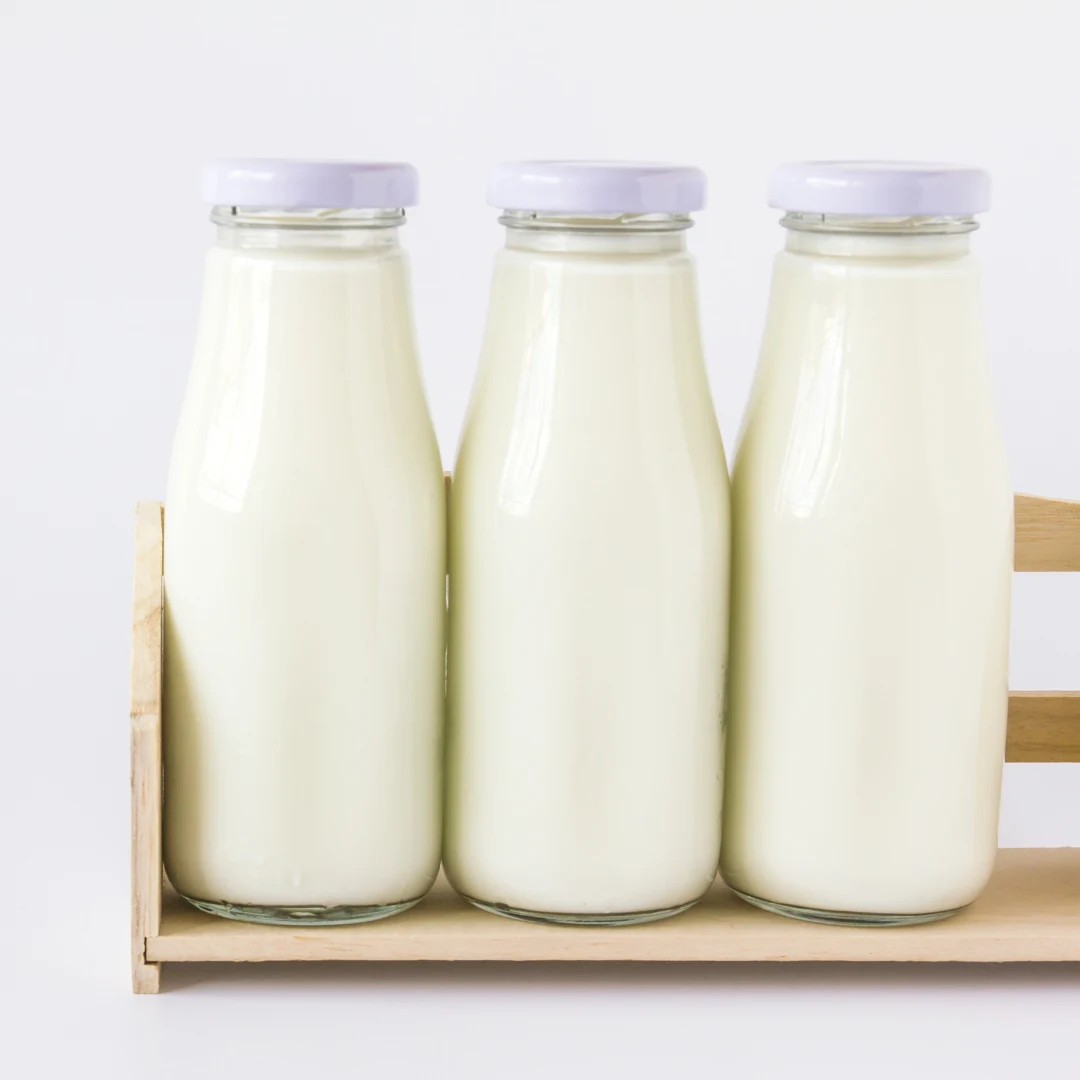
It’s a common myth that baby rabbits (also known as kits) can be fed regular cow or goat milk if they’re separated from their mother rabbit too early. But here’s the deal – the milk from a female rabbit significantly differs from other animals’ milk. It’s much richer in nutrients, designed by Mother Nature specifically for baby bunny tummies. Suppose you’re in a situation where you need to feed baby rabbits. In that case, it’s crucial to seek guidance from a vet on a suitable substitute, which is often a specially formulated kitten milk replacer, not cow or goat milk.
I know, I know—those movie scenes where the tiny, orphaned animal is saved by a kind-hearted person feeding it milk are so touching. But the reality is that feeding rabbits milk could cause more harm than good. What’s good for humans—or even some other pets—isn’t necessarily good for our long-eared companions. The ASPCA’s Animal Poison Control Center maintains a list of people’s food to avoid feeding your pets.
In essence, the best beverage for your rabbit is fresh, clean water—and plenty of it. Ensuring your rabbit has enough water will support its overall health far more than any milk could. Sticking to its natural diet will help keep your furry friend hopping happily through life. Remember, the goal is to keep them with us, nibbling on their favorite treats and binkying around for as long as possible.
How About Milk for Baby Bunnies?
The adorable baby bunnies called kittens can get a bit tricky when it comes to feeding, especially if they’ve been orphaned. The truth is, mother rabbits provide a kind of super milk that’s hard to match. This rabbit milk is jam-packed with all the nutrients those little fuzzballs need to grow strong and stay healthy. But what happens when those essential meals from mother rabbits aren’t an option?
If you find yourself caring for orphaned rabbits, the first thing to remember is that cow’s milk is a no-go, as we already mentioned. I’ve been there, thinking a trip to the pet stores for regular milk could do the trick, but I couldn’t have been more wrong. 😢
Milk Alternatives for Orphaned Baby Rabbits
A specially formulated kitten milk replacer is your best bet. Yes, that’s right – the kind made for cats! You can often find these at your local pet stores or vet clinics. This replacement milk comes closest to mimicking the nutrient-rich cocktail that mother rabbits bless their babies with. When preparing it, ensure it’s mixed with warm water and served at a comfortable, body-like temperature. Baby rabbits should be fed this mixture twice daily, keeping a close eye to ensure they eat enough but not too much.
Now, transitioning to solid food, that’s a whole other chapter. Kits start nibbling on solid food while still in the nest, learning from their mothers. Without mother rabbits to guide them, you’ll need to gradually introduce them to hay, fresh, leafy greens, and a small amount of pellets. 🌿
Understanding the unique needs of baby rabbits can be daunting, but helping these little ones thrive without their mothers becomes a gratifying experience with the proper knowledge and a lot of love.
Are Milk-Related Treats Like Yogurt Good for Rabbits?
Okay, I must say it’s a pretty common question when it comes to milk-related treats like yogurt for rabbits. You might think, “Hey, yogurt’s healthy, right? Packed with probiotics and all that good stuff?” Well, from experience and a fair bit of research, I’ve learned that dairy products, including yogurt, are a no-no for our bunny friends. 🚫🐰
Rabbits have a delicate digestive system that’s not designed to handle dairy. Introducing yogurt or other milk-based products can lead to serious digestive issues and, in some cases, can even be fatal.
But hang on, what about all the good bacteria and probiotics in yogurt that are supposed to help digestion? Well, rabbits do their own special kind of probiotic magic. They produce cecotropes, which are nutrient-packed droppings that they eat directly from their, uh, output 😲. It’s a bit icky to us, but it’s their natural way of keeping their gut health in check without dairy products.
Treat Alternatives for Rabbits
Now, if you’re itching to treat your bunnies, you’re in luck because plenty of safe and bunny-approved options exist. Fresh fruits and veggies can be great treats in moderation. Think about it—a slice of apple or a few carrot tops can be delightful treats for your rabbits. 🍎🥕 Just make sure to introduce any new foods slowly to avoid upsetting their sensitive tummies. And remember, these are just treats, so keep them at the minimum.
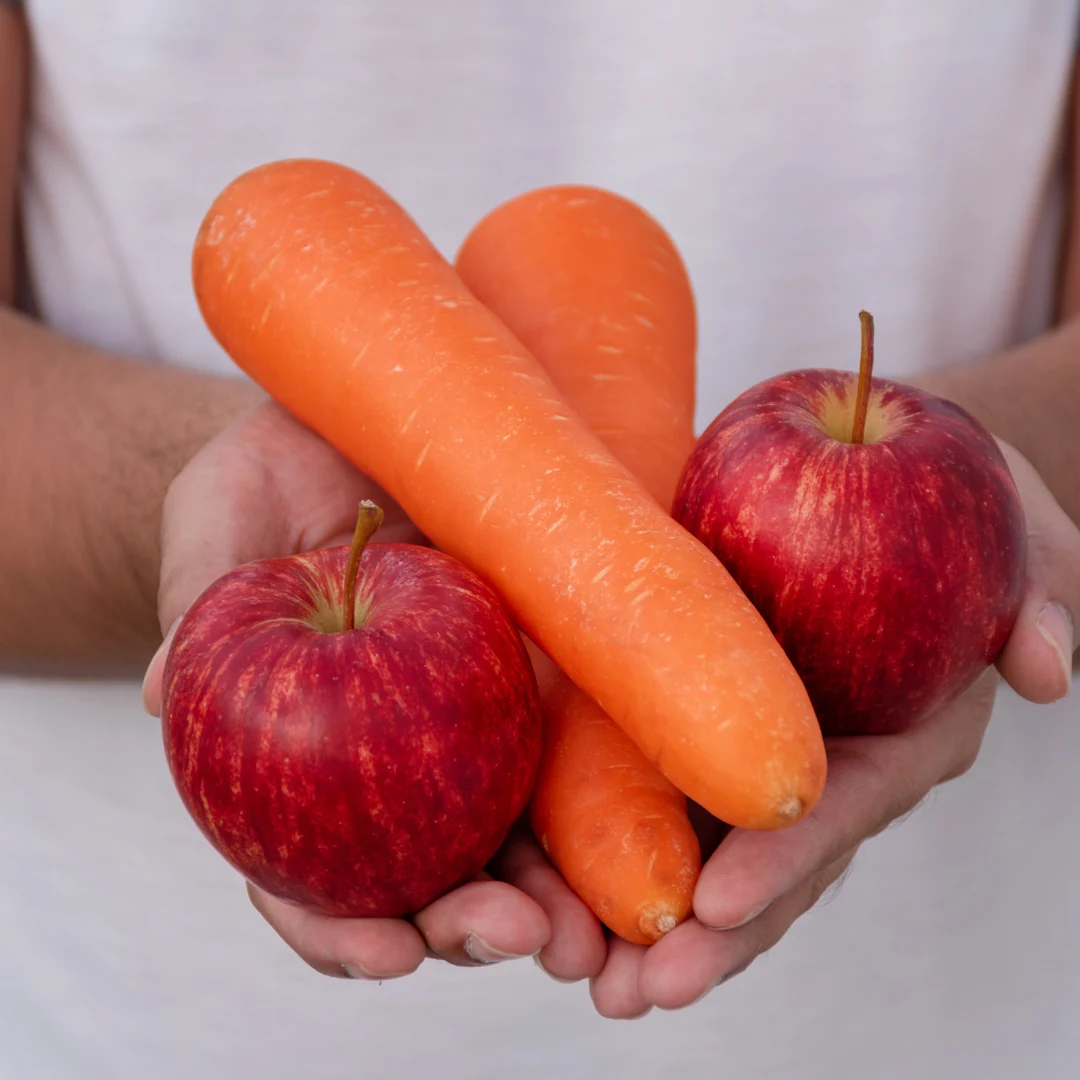
I’ve always found that young rabbits love nibbling on fresh hay, especially those not long separated from their mother rabbit. Timothy hay or alfalfa hay can particularly appeal to rabbits under a few weeks old. Not only does it help them feed their hunger, but it also plays a crucial role in wearing down their constantly growing teeth.
In summary, steer clear of yogurt and other dairy products for your rabbits and stick to safer, more natural treat options like fresh fruits, vegetables, and plenty of hay. 🐇💚
Other Drinks Besides Water That Rabbits Can Drink
Hydration is as crucial for our fluffy friends as it is for us. 🐇💧 While water remains the gold standard drink for rabbits, both wild and domestic, you can introduce a few safe and honestly exciting options to spice up their drink menu. And don’t worry, I’ve ventured down this rabbit hole before, so I’m here to share the scoop!
First, always ensure your bunny’s bottle or bowl is filled with fresh, clean water every day. Adult and baby rabbits need constant access to water to stay healthy and happy. But if you want to add a little variety to their hydration routine, consider herbal teas and diluted fruit juices. 🍵🍏
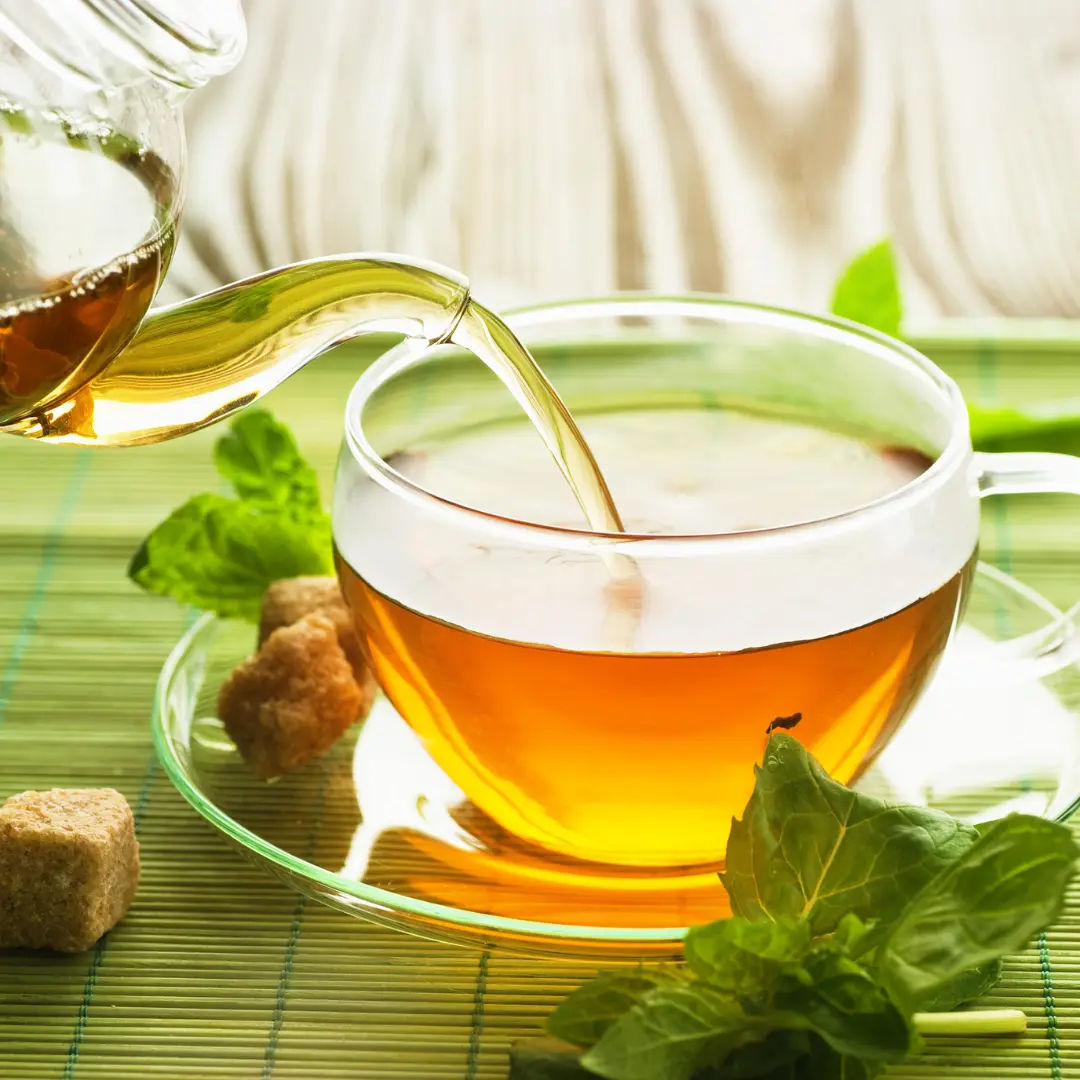
Herbal teas? ☕️ Yup, you heard that right! Think of the milder ones, like chamomile or dandelion tea. These can be beneficial, especially for stressed or unwell rabbits, providing them with a soothing and hydrating drink option. Just make sure the tea is unsweetened and not too hot. Trust me, seeing your rabbit sip on a little cup of tea (figuratively, of course) is as adorable as it sounds!
Now, onto diluted fruit juices. I’m talking significantly diluted—like a splash of apple or cranberry juice in a bowl of water. Due to the sugar content, this should not be a daily treat, but it’s a nice occasional surprise. Plus, it can encourage those pickier drinkers to hydrate more. Remember, though, that fresh is best, and avoid anything with added sugars or artificial sweeteners.
Hydration is pivotal in a rabbit’s diet, right next to their usual pellets and food. It helps keep their digestion running smoothly and supports overall health. Whether you’re dealing with the robust energy of wild rabbits or the delicate needs of baby rabbits, ensuring they have access to appropriate drinks besides their standard water can contribute significantly to their well-being.
So, while water will always be the mainstay in their bottles, introducing herbal teas and diluted fruit juices as occasional treats can add a delightful twist to their hydration habits. Always make sure these alternatives are safe, free from caffeine and sugars, and introduced gradually into their diet. Here’s to healthy, hydrated bunnies! 🐰💕
Conclusion
Can rabbits drink milk? The answer is straightforward: Milk and milk-derived products are generally a no-go for our bunny pals. 🐰❌ From baby bunnies to full-grown floofs, the rabbit’s digestive system can’t handle cow’s milk or anything similar. It’s crucial to understand that while these adorable animals might seem invincible as they zoom from one corner of the garden to another, their insides are pretty delicate.
Reflecting on our chat today, it’s clear that while we can get creative with hydrating our rabbits—hinting at the occasional herbal tea or super diluted fruit juice—what we feed them needs to be as close to their natural diet as possible. Starting from the basics, water is the superhero of their hydration story, with a small supporting cast of safe, bunny-friendly beverages. It’s all about keeping that delicate digestive system running like a well-oiled machine. 💧✨
Caring for our little hoppy friends is not just about the love and cuddles (though those are pretty great, too); it’s about prioritizing their health and well-being through a proper understanding of their dietary needs.
Whether you’re a seasoned rabbit owner or considering bringing one into your life, remember that these magnificent creatures rely on us to make the best choices. Here’s to the health and happiness of our bunnies—our fluffy, hopping, hay-munching family members! 🥕💖
Related Questions
Can Rabbits Eat Chocolate?
Oh, absolutely not! 🍫❌ While chocolate may be a heavenly treat for us, it’s a big no for our bunny friends. Chocolate contains substances like theobromine and caffeine, which are toxic to rabbits, even in small amounts. Stick to bunny-safe treats to keep those tails wagging!
Are Carrots Really a Rabbit’s Best Friend?
It might surprise you, but carrots should only be an occasional treat! 🥕✨ While famously associated with rabbits, carrots are high in sugar and should be given sparingly. Think of them as the rabbit equivalent of candy. A balanced diet with plenty of hay, water, and leafy greens is much better for our long-eared buddies.
How Important Is Hay For Rabbits?
Extremely important! 🌾🐰 hay is a crucial part of a rabbit’s diet, providing essential fiber that helps keep their digestive system healthy. In fact, hay should make up the majority of your rabbit’s daily food intake. Make sure

